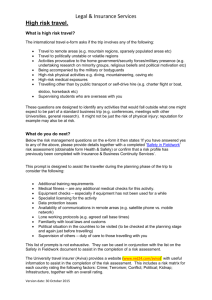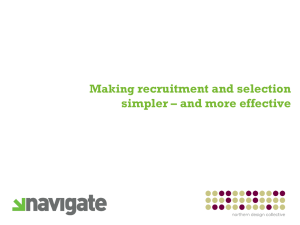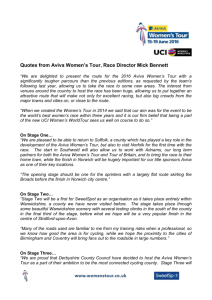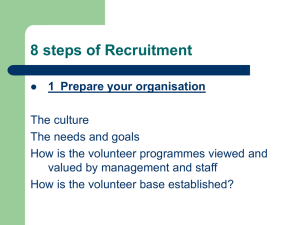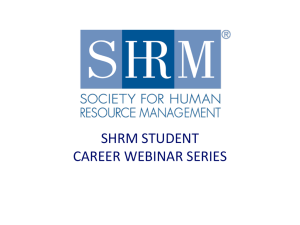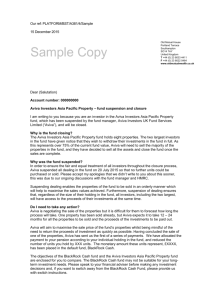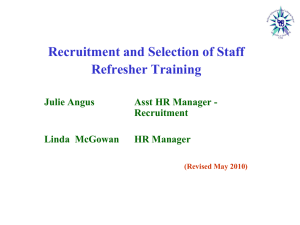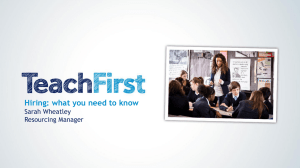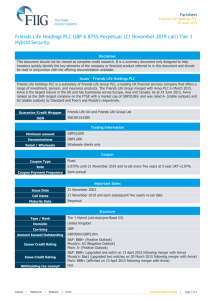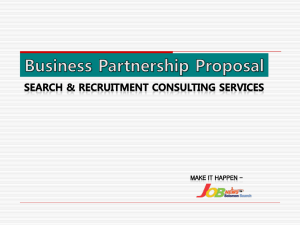Aviva - Directions Online Career Service
advertisement
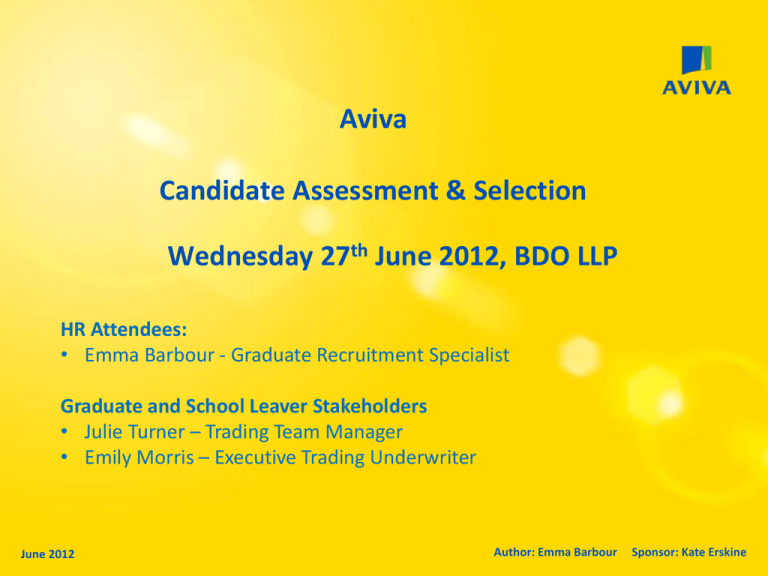
Aviva Candidate Assessment & Selection Wednesday 27th June 2012, BDO LLP HR Attendees: • Emma Barbour - Graduate Recruitment Specialist Graduate and School Leaver Stakeholders • Julie Turner – Trading Team Manager • Emily Morris – Executive Trading Underwriter June 2012 Author: Emma Barbour Sponsor: Kate Erskine Agenda • Common Assessment & Selection methods • Key skills and competencies sought • What is new in Assessment and Selection? • Pre-Assessment Centre activity • Assessment Centres • Common reasons for unsuccessful performance • Changing assessment and selection methods Most Used Assessment and Selection Methods • Application form and ‘killer questions’ • Essay questions • CV screen • Online aptitude tests • Telephone interview (sometimes two stages) • Assessment centre (sometimes inclusive of a one to one interview) • Social assessments – lunch, dinner or drinks with prospective employers. • Final interview Skills, competencies and behaviours In addition….. •Dependent on the scheme or • Right Attitude programme there may be specific • Willingness to learn capabilities that we look for that • Patience are critical to that area of • Demonstrate development potential • Behavioural skills • Life Experience – are they ‘street wise’? • Commercial Awareness leadership capabilities we expect • IT Competent – can they adapt to regular changes in technology? of our employees • Communication Skills – both verbal and written functional discipline a student may be entering •Global framework for the •Global framework of ‘shared Many competencies are potentially common across other financial services firms! capabilities’ i.e. behaviours we think should be common to all irrespective of their role. Assessment and Selection – Continuous Improvement Within Aviva we are focused on continuously improving our A&S process for three key reasons; • Ensuring we identify and select the top talent within a talent pool – it is particularly important that we identify individuals who will thrive in Aviva's culture and the potential to gain the professional • We ensure that recruitment is effective and cost efficient for the business - recruitment takes time and costs money • Ensuring the candidate experience is always positive. Aviva wants to be the most recommended insurance firm and that extends to recruitment too. What’s new in Assessment and Selection? Situational Judgement tests Identifying ‘high fliers’ Work samples Assessment of emotional intelligence and other ‘social intelligences Increased use of ability tests ‘Near to Peer’ assessment Strengths-based interviewing ‘Interview in a Lift’ Assessment & Selection Process Stage 0 • Candidate self deselects Stage 1 • Application form and ‘killer questions’ - 25% Stage 2 • CV and application screen - 50% Stage 3 • Online aptitude tests - 5% Stage 4 Recruitment handover candidates to the business • Telephone screen - 10% Stage 5 Key % Anticipated % of candidates be screened out at this stage of the recruitment process • Assessment Centre (Supported) 14 Assessment Centre Preparation • Practice online aptitude tests • Student’s should research the company profile • Be prepared for a full day of activities • Bring the requested documents (CV, ID checks etc) • Smart office attire appropriately dressed for an interview • Think about the information they would like to know about the role and Aviva – have some pre-prepared questions of their own! Aviva’s Golden Rule Preparation, preparation, preparation!!! Common Reasons for an Unsuccessful Performance Not speaking or listening to the appropriate level Lack of team work Not standing out from the crowd Commercial acumen Preparation, preparation, preparation!!! Over confidence Being underprepared Changing Assessment and Selection Methods • Smarter use of automated screening tools and appropriate online testing • Ensure attraction materials and job description are fully reflective of the offering and the requirements to be met. (This is our first and most crucial selection tool) • Planning and coordination of talent pipeline stages – create a plan of activity for the year • Provision of sufficient guidance and support to applicants • Higher benchmarks to allow organisations to access the highest calibre in the talent pool. • Establish candidates commitment to and organisations long term career proposition. • Candidates changing reaction to assessment and feedback must be considered This is all leading to and overall change in attraction strategy! © Aviva plc
